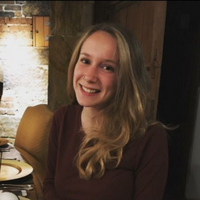
UK pandemics – the WHO, why, and when?
How vulnerable is the UK to pandemics, and will anything change after COVID-19?
We know that when animals are kept in unnatural and overcrowded conditions, disease can spread rapidly. In the UK, 70% of animals killed for food are kept on factory farms where they live in confined spaces with hundreds, or even thousands of others. It is no wonder, then, that factory farms have been the origin of pandemics like bird flu and swine flu.
Both birds and pigs can act as a reservoir for a vast diversity of influenza viruses – for example, the 2009 swine flu pandemic was of avian origin, but evolved in a pig farm resulting in over 250,000 deaths worldwide. Just last year, tens of thousands of poultry had to be culled due to an outbreak of bird flu in the UK, most of whom were housed on intensive farming systems, and although the UK was recently declared free of bird flu, it might not be long until we see another resurgence if we do not introduce higher welfare standards into our farming practices, and introduce much lower stocking densities of animals and slower growing breeds.

Another hotly debated topic is that of Bovine TB (bTB), which is an infectious disease of cattle and other mammals that can cause devastating impacts on farmers and rural communities. bTB costs UK taxpayers more than £100 million a year, and in 2020 alone over 27,000 cattle were slaughtered to curb its spread. However, this disease also has damaging consequences for other mammals who are potential carriers. To date, over 140,000 badgers have been culled in an attempt to control the spread of bTB, and it is predicted that another 140,000 will be killed in the coming years. As the population currently stands at around 485,000 in England and Wales, this cull could have a lasting impact on the numbers of this protected and iconic British species. As well as this, bTB is a zoonotic disease, meaning that it can be transmitted from animals to humans under certain conditions, which is why the Government has taken such dramatic measures to try and curb it. However, due to the pasturisation process of milk we have now all but eradicated the risk to humans, however badgers are still victims to biosecurity measures and FOUR PAWS UK believes that we need to end the cull and focus on vaccination programmes to address the issue in order to have a real and lasting impact.

In addition, we are still importing millions of pounds of fur each year from countries where fur farms have been a known reservoir of the coronavirus and resulted in the closure of hundreds of farms, and and wasteful death of thousands of mink. Are we opening up our doors to more outbreaks and variants by importing products from high risk practises like fur farms? This is one of the reasons why we are calling for a #FurFreeBritain.

After the catastrophic consequences of COVID-19, alongside other zoonotic pandemics that have reached the shores of the UK in recent history, we hope that the Government will make animal welfare a priority to prevent future pandemics. This is not only a wake-up call to change the system, but also an opportunity to create a world where animals, the environment and humans are treated better.


